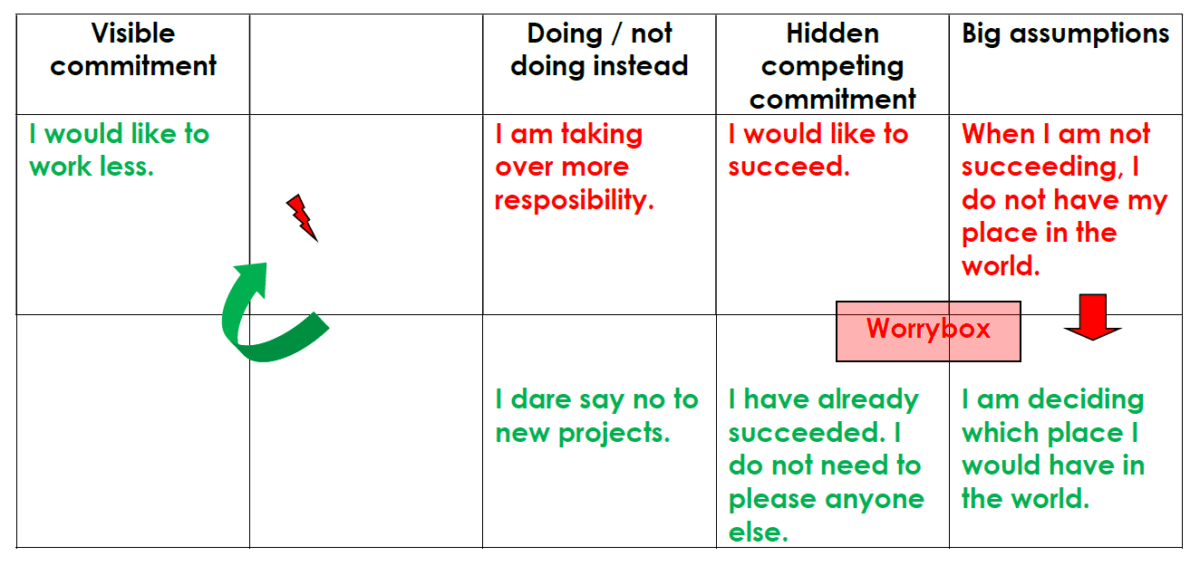The method is used when individuals and teams need to overcome their resistance to change.

Usage
- Identifying the collective improvement goal
- Agree upon a single collective goal
- Assess it’s alignment with appropriate questions:
- Do we agree we are not doing well enough on this?
- Do we agree we are significantly implicated in this – that the problem cannot be largely laid at the feet of parties or forces external to the boundaries of this group?
- Is it important to us to get better at this? Are there big payoffs (or big costs averted) if we do?
- Taking a fearless inventory (of behaviors contrary to the improvement goal)
- List concrete behaviours
- Behaviours that are working against 1.
- Don’t ask why (resist problem solving!)
- All acknowledge
- Uncovering competing, conflicting objectives
- Fill in the worry box: What do I think our group would be most worried about if we tried to do the opposite of every second-column entry?
- Consider each worry or fear offered by a group member.
- Convert it into a possible third-column commitment. Examples:
- «We worry that the ownership group will thing we are not 100 % committed to the work» becomes «We are committed to never running the risk the ownership group feels we are slacking off.»
- «We worry, if we trust the group to make decisions, that our own self-interest will not be protected» becomes «We are each committed to having a say in every decision in order to protect our own self-interest».
- Each is tightly tied to a particular collective worry or fear.
- Uncovering collective big assumptions
- They make the commitments inevitable
- They represent a «danger zone»:
- Do we feel that these aspects or our mindsets are seriously impairing our effectiveness?
- Do we feel like it could make a big difference if we able to release ourselves from these group beliefs?
- Do we feel that we owe it to ourselves to see if we can alter any of these?
Source
Kegan, Robert & Laskow Lahey, Lisa (2009):
Immunity to Change. How to overcome it and unlock the potential in yourself and your organization. Harvard Business Press.
